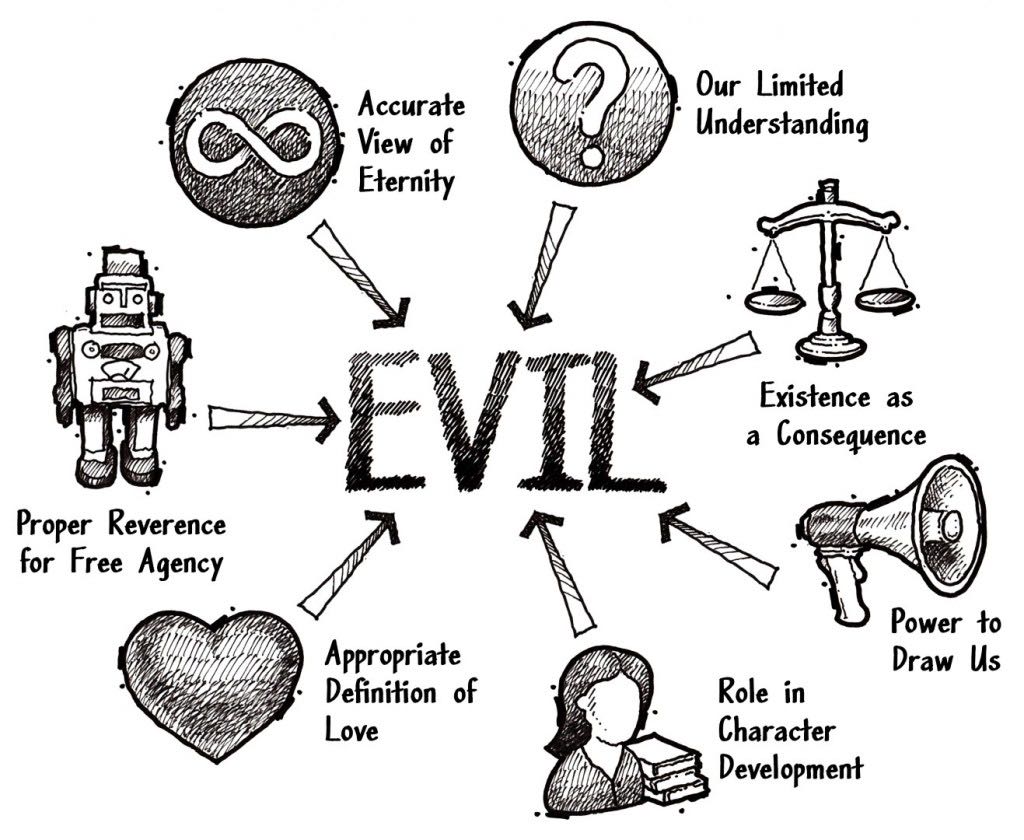
“Is God willing to prevent evil, but not able? Then he is not omnipotent.
Is he able, but not willing? Then he is malevolent.
Is he both able and willing? Then whence cometh evil?
Is he neither able nor willing? Then why call him God?”
If the morally benevolent, all-powerful, Divine Creator of the universe I describe in God’s Crime Scene does indeed exist, how are we to explain the existence of evil? My experience as a homicide detective taught me a lot about how difficult it is to explain any act of evil. When trying to explain the manner in which a crime occurs (or when trying to make a case for the involvement of a particular suspect), we must always be prepared to explain and illustrate the cumulative, complex, interconnected causal factors involved. There are no easy answers. The truth is always more complicated than we would like.
In a similar way, whatever explanation there may be for the presence of evil and injustice in the world, it will certainly involve a cumulative, complex set of explanations and causal factors. There will be no easy answer. Instead, we should expect a tangled web of complexity. In God’s Crime Scene, I offer a seven part template to illustrate the important considerations that must be taken into account when trying to explain any act of evil. One of these is simply our definition of “love”:

Illustrations from God’s Crime Scene
What precisely does it mean to be “all-loving”, particularly when we apply this definition to the Divine Creator of the universe? Popular cultural definitions of “love” typically refer to “kindness,” “gentleness,” “adoration,” or “affection.” But if you’re a parent, you know love is much more than this. There are times when kindness and tenderness are appropriate expressions of love, and there are times when love demands stern discipline, correction, and guidance. Good parents learn to embrace a fuller, richer, more complex definition of love.
If our concept of love, when applied to the Creator of the universe, is limited to gentleness and tenderness, we will likely have difficulty reconciling the existence of a Divine Creator with the presence of nearly any hardship we experience. No one likes to experience “tough love”; we much prefer to experience love in its more hedonistic, self-serving forms. As C. S. Lewis so aptly observed, “We want, in fact, not so much a Father in heaven as a grandfather in heaven—a senile benevolence who, as they say, ‘liked to see young people enjoying themselves,’ and whose plan for the universe was simply that it might be truly said at the end of each day, ‘a good time was had by all.’”
But there’s a difference between the love of a parent and the love of a grandparent. Parents must embrace a more balanced approach with their children if they truly love them. If the loving nature of the Divine Creator is as broad and all-encompassing as that of a parent, we should expect some difficult circumstances to be an evidence of the Creator’s love, especially if a greater good is achieved as a result of temporal suffering. Parents often discipline their children to accomplish an important goal, but our children usually fail to see our efforts as loving.
Love, in its truest sense, however, is concerned with more than our immediate happiness and pleasure. Love aims for something more lasting. The love of an eternal Creator would seek something beyond our temporal happiness, even though we may fail to see our circumstances as an expression of this love. C.S. Lewis puts it this way: “The problem of reconciling human suffering with the existence of a God who loves, is only insoluble so long as we attach a trivial meaning to the word ‘love’, and look on things as if man were the centre of them. Man is no not the centre. God does not exist for the sake of man. Man does not exist for his own sake.”
Any effort to explain a particular act of evil must take into account an appropriate definition of “love” along with an accurate view of eternity, a proper reverence for free agency, and an understanding of the role of evil in character development and its power to draw us to God. We must also remember our own accountability in acts of evil and our limited understanding of what God might be doing given His omniscience. That’s a lot to consider; explaining the problem of evil is a problem of its own, given the complexity of the answer. That shouldn’t surprise us, it’s the nature of all my homicide cases. A murder occurs in a moment, the explanation will take weeks in front of a jury. Any effort to explain a particular act of evil must take into account an appropriate definition of “love” Share on X
To better understand the interconnected relationship between the seven considerations for evil I’ve mentioned, please refer to God’s Crime Scene, Chapter Eight – The Evidence of Evil: Can God and Evil Coexist?

J. Warner Wallace is a Dateline featured Cold-Case Detective, Senior Fellow at the Colson Center for Christian Worldview, Adj. Professor of Christian Apologetics at Talbot School of Theology, Biola University, author of Cold-Case Christianity, God’s Crime Scene, and Forensic Faith, and creator of the Case Makers Academy for kids.
Subscribe to J. Warner’s Daily Email
J. Warner Wallace is a Dateline featured cold-case homicide detective, popular national speaker and best-selling author. He continues to consult on cold-case investigations while serving as a Senior Fellow at the Colson Center for Christian Worldview. He is also an Adj. Professor of Christian Apologetics at Talbot School of Theology, Biola University, and a faculty member at Summit Ministries. He holds a BA in Design (from CSULB), an MA in Architecture (from UCLA), and an MA in Theological Studies (from Gateway Seminary).
































